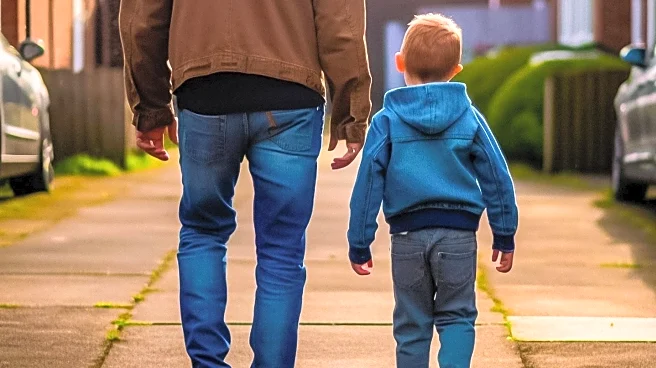What's Happening?
A stepfather is grappling with the influence of his stepson's biological father, who is described as a negative presence in the child's life. The biological father, characterized as an addict and irresponsible, has exposed the 14-year-old to harmful behaviors
and ideas. Despite the father's negative impact, the stepson continues to seek his approval. The stepfather is considering whether to inform the child about his father's true nature, but is advised to focus on positive role modeling instead.
Why It's Important?
This situation highlights the challenges faced by blended families, particularly when a biological parent is perceived as detrimental to a child's well-being. The dilemma underscores the importance of positive role models and the potential impact of parental influence on a child's development. It raises questions about the best approach to protect and guide children in complex family dynamics, emphasizing the role of patience and leading by example.
What's Next?
The stepfather is encouraged to continue being a positive influence in his stepson's life, focusing on demonstrating love, tolerance, and responsibility. This approach aims to provide the child with a stable and supportive environment, potentially counteracting the negative influence of the biological father. The situation may evolve as the child matures and gains a clearer understanding of his family dynamics.
Beyond the Headlines
The ethical considerations of discussing a parent's negative traits with a child are complex. This situation may prompt broader discussions on the responsibilities of stepparents and the impact of family dynamics on child development. It also highlights the importance of communication and support within blended families.















